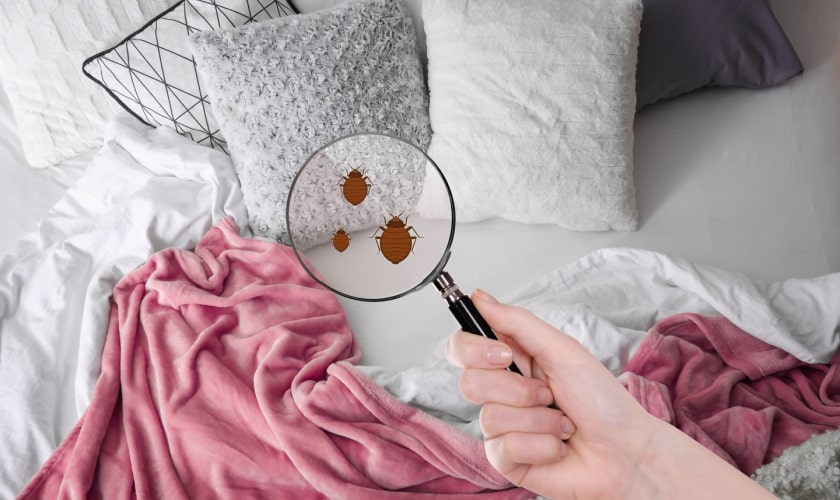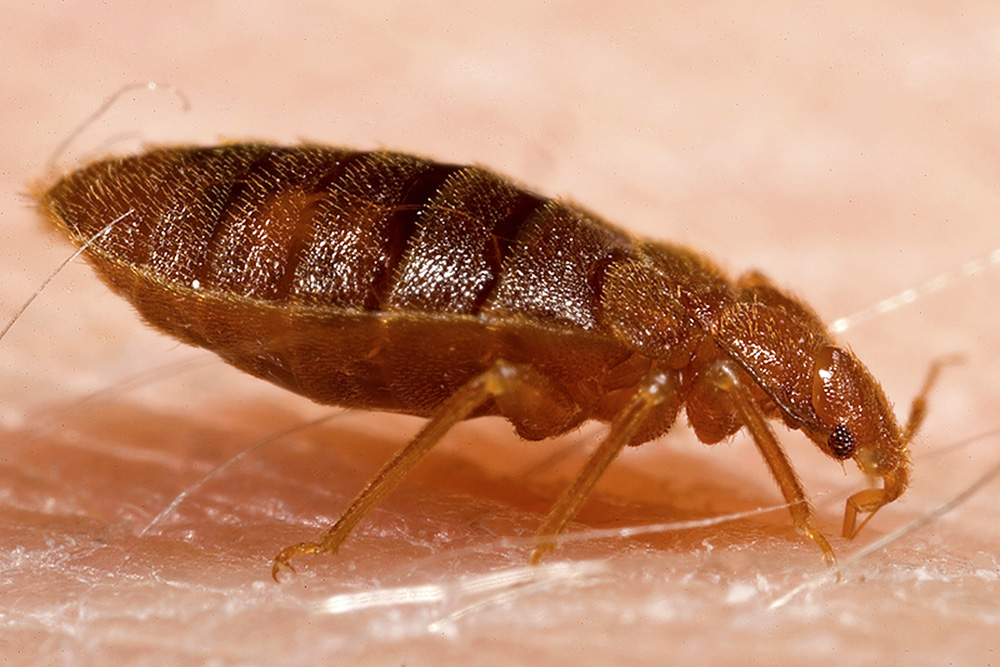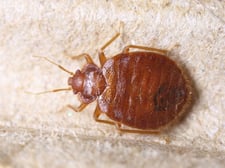Top Kings Cincinnati Bug Control Services: Pest Control Expert Competence
Wiki Article
A Break Down of the Different Kinds of Parasite Control Solutions
In the world of pest control, a wide variety of methods exist to deal with and battle the presence of unwanted animals. From the conventional usage of chemical pesticides to more ingenious organic control remedies, each strategy supplies distinct benefits and limitations. As we navigate through the varied landscape of insect control options, recognizing the complexities of each approach comes to be paramount in determining one of the most reliable strategy. Remain tuned as we explore the nuanced globe of pest control techniques and uncover how each type plays a special function in guarding our environments.Chemical Pesticides
Chemical chemicals are typically utilized in insect control to successfully remove a wide variety of insects and various other parasites. These pesticides work by targeting the nerve system of the bugs, disrupting their typical functions, and eventually causing their death. Using chemical pesticides has actually been a staple in the pest control sector for years as a result of their performance and fast outcomes.
Nevertheless, it is vital to utilize chemical pesticides with care because of their possible hazardous impacts on the atmosphere and non-target species. Incorrect application or overuse of these pesticides can lead to air pollution, damage to valuable insects, and resistance growth in bug populaces. It is essential to comply with safety standards and policies when utilizing chemical pesticides for parasite control.
Biological Control Techniques
Thinking about the potential ecological impacts and risks connected with chemical pesticides, organic control methods use an even more lasting strategy to managing pest populations. Organic control entails using all-natural opponents, such as bloodsuckers, predators, and pathogens, to subdue parasite populaces. This approach is typically much more targeted, impacting only the specific bug species while decreasing harm to beneficial pests, humans, and the environment.

Once developed, natural adversaries can help regulate pest populaces constantly without the demand for duplicated applications of chemicals. In addition, organic control is frequently much more cost-efficient and can assist lower pesticide resistance in parasite populations over time.

Mechanical Pest Control
Mechanical pest control includes the physical control or elimination of insects to manage their populations effectively. This method is commonly employed along with other parasite control approaches for extensive parasite monitoring. One typical example of mechanical pest control is using traps to capture rodents or insects. These catches can be established in tactical areas where bugs are understood to dwell, aiding to lower their numbers.
Another mechanical strategy is making use of obstacles such as fences, internet, or displays to obstruct parasites from entering particular locations. By literally protecting against pests from accessing a place, the chance of infestations or damage can be considerably minimized. Furthermore, hands-on techniques like handpicking bugs off frameworks or bed bugs control plants can be reliable for smaller-scale problems.
While mechanical parasite control approaches can be labor-intensive, they offer a non-chemical alternative that can be environmentally friendly and lasting. By targeting bugs straight, mechanical control methods can assist keep pest populaces in check without relying upon chemicals.
All-natural Treatments
Using natural remedies for parasite control supplies a sustainable and environmentally friendly method to managing pest populaces without considering chemical interventions. Natural solutions include utilizing substances acquired from plants, minerals, or various other naturally taking place resources to discourage or eliminate bugs. Planting certain natural herbs like basil, mint, or lavender around your residential or commercial property can repel insects due to their strong fragrances. Diatomaceous earth, a powder made from fossilized algae, can be made use of to fight pests like ants, roaches, and bed bugs by dehydrating their exoskeletons.In addition, vital oils such as tea tree oil or neem oil have insecticidal residential or commercial properties that can successfully control insects while being risk-free for the setting. Another natural solution is presenting advantageous bugs like ladybugs or hoping mantises to your yard to take advantage of damaging parasites. By incorporating these natural services right into parasite management techniques, people can minimize their dependence on artificial chemicals and promote a healthier, a lot more well balanced ecological community.
Integrated Bug Monitoring
Integrated Insect Monitoring (IPM) is a detailed strategy that combines various methods to successfully manage pest populaces while lessening dangers to human wellness and the setting. IPM entails the combination of numerous insect control approaches such as organic control, environment manipulation, adjustment of cultural methods, and making use of resistant crop selections. By making use of a mix of these techniques, IPM aims to reduce reliance on chemical pesticides, which can have negative effects on ecological communities and human health.One key facet of IPM is the focus on prevention. By executing procedures to stop bug invasions before they take place, such as keeping appropriate sanitation and securing entrance points, the need for responsive insect control measures is minimized. Surveillance and routine assessments click here for more play a vital function in IPM, allowing for very early detection of parasite problems and prompt treatment.
Conclusion
In conclusion, the different kinds of parasite control solutions use an array of alternatives for efficiently handling bug problems. Biological control methods make use of all-natural predators to manage parasites. Integrated Parasite Management integrates several methods for a holistic method to pest control.Chemical pesticides are frequently made use of in parasite control to properly remove a broad range of insects and other bugs.Mechanical bug control entails the physical adjustment or elimination of parasites to handle their populaces properly (Kings find out this here pest control Cincinnati Ohio).Using all-natural treatments for insect control provides a sustainable and environmentally friendly method to managing parasite populaces without resorting to chemical interventions.Integrated Insect Management (IPM) is a comprehensive approach that combines numerous approaches to successfully manage pest populations while decreasing dangers to human health and wellness and the environment.In verdict, the different types of parasite control options provide a variety of options for properly handling insect problems
Report this wiki page